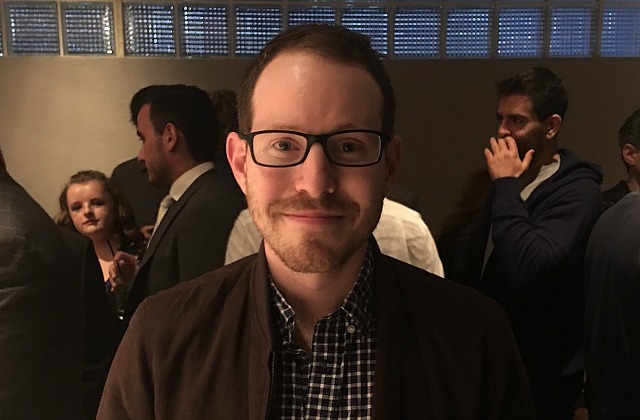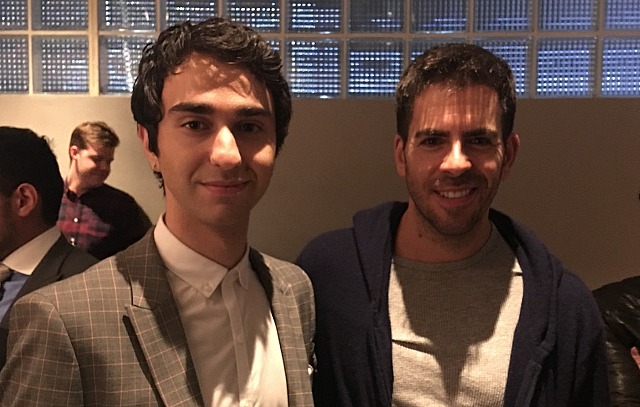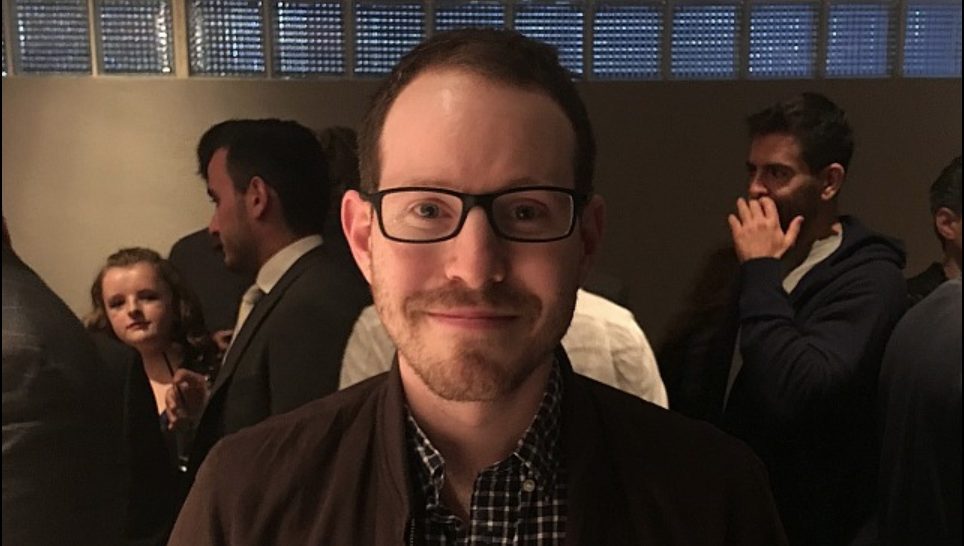Worth repeating: John Krasinski‘s A Quiet Place, Robert Eggers‘ The Witch, Jennifer Kent‘s The Babadook, Andy Muschietti‘s Mama and now Ari Aster‘s Hereditary.
Aster’s low-budgeter, which starts out in a sensible, unforced fashion before flipping the crazy switch around the halfway mark and going totally bonkers (and I mean that in the best way imaginable), is quite the brilliant horror-thriller. You can tell right away it’s operating on a far less conventional, far more original level of craft and exposition than a typical horror flick, or even an above-average one.
The best portions recall the classic chops of early Roman Polanski (particularly Repulsion and Rosemary’s Baby) as well as Jack Clayton‘s The Innocents, but I was just as impressed by the performances — three, to be precise — as the shock-and-creep moments, and that’s saying something for a ghost film.

Hereditary director-writer Ari Aster during last night’s post-screening party at Neuehouse.

Hereditary costar Alex Wolff, director Eli Roth.
Hereditary begins as a suburban-milieu film about a family of five that’s just become a unit of four. Odd flickerings of weirdness begin to manifest, but nothing you can point your figure at. And then the number drops to three, and then the spooky-weird stuff kicks in a bit more. And then it goes over the fucking cliff.
The film is carried aloft and fused together by Toni Collette‘s grief-struck mom, Annie. It may be Collette’s most out-there performance ever. It’s certainly her most boundary-shattering in terms of connecting with the absolute blackest of currents. Collette convinces you that her character isn’t suffering a psychotic breakdown of sorts, that she’s going through her torments because it’s all 100% real, and at the same time allows you to consider that she has gone around the bend. Or that we may be watching a metaphor for the tortures of grief-driven insanity.
As the narrative advances Annie becomes more and more nutso, but relatably so. That’s quite the acting trick.
Nearly as effective is Alex Wolff as Peter, Collette’s guilt-crippled teenage son, and Ann Dowd as Joan, a kindly and sympathetic woman who meets Collette at a grief-therapy group. Gabriel Byrne is a little morose as Steve, Annie’s husband. The curiously featured Milly Shapiro is fine as Charlie — Peter’s younger sister, Annie and Steve’s daughter.
You won’t believe the ending of this thing. You will, I mean, because you have no choice, but you really don’t want to because it’s so “aaaggghhh!” But you must. It’s so outrageous that I was chuckling over the closing credits, and so was the guy sitting next to me. It was almost the same kind of chuckling that came out of my first viewing of Fellini Satyricon.
By the way: We’re all become resigned to filmmakers’ general lack of interest in casting younger thespians who at least vaguely resemble their on-screen parents. This happens so often that it’s not so much a “problem” as a perpetual annoyance, but there’s no way on God’s green earth that Wolff and especially Shapiro could even be cousins of Collette and Byrne, much less their direct sires. Just saying.

